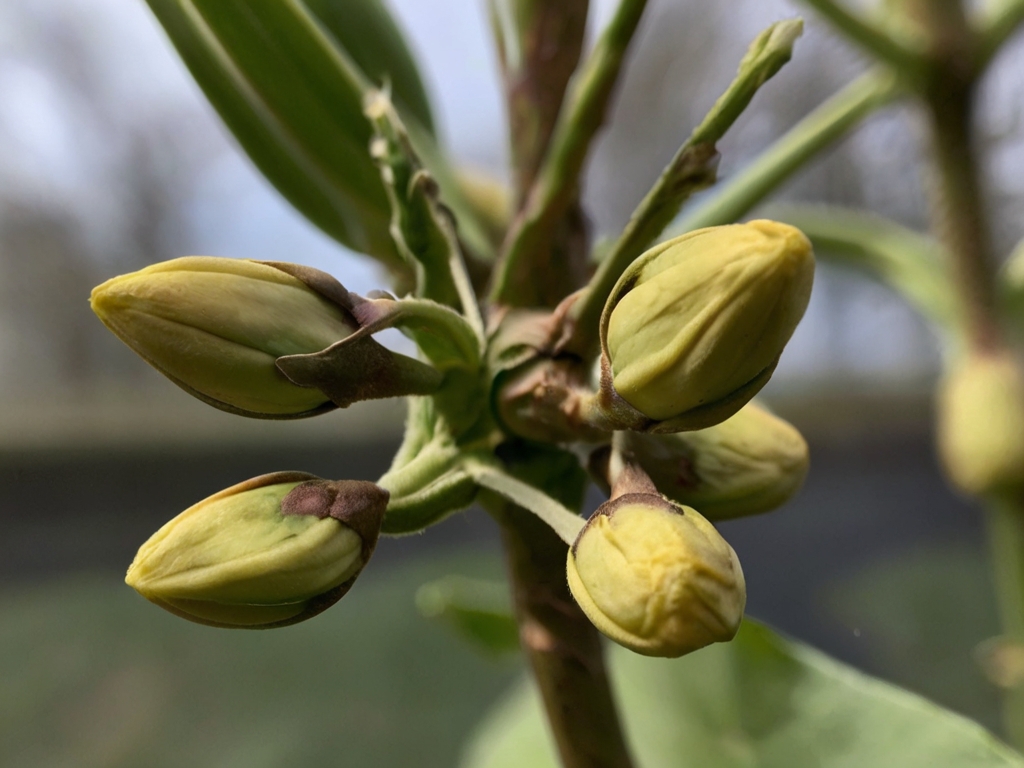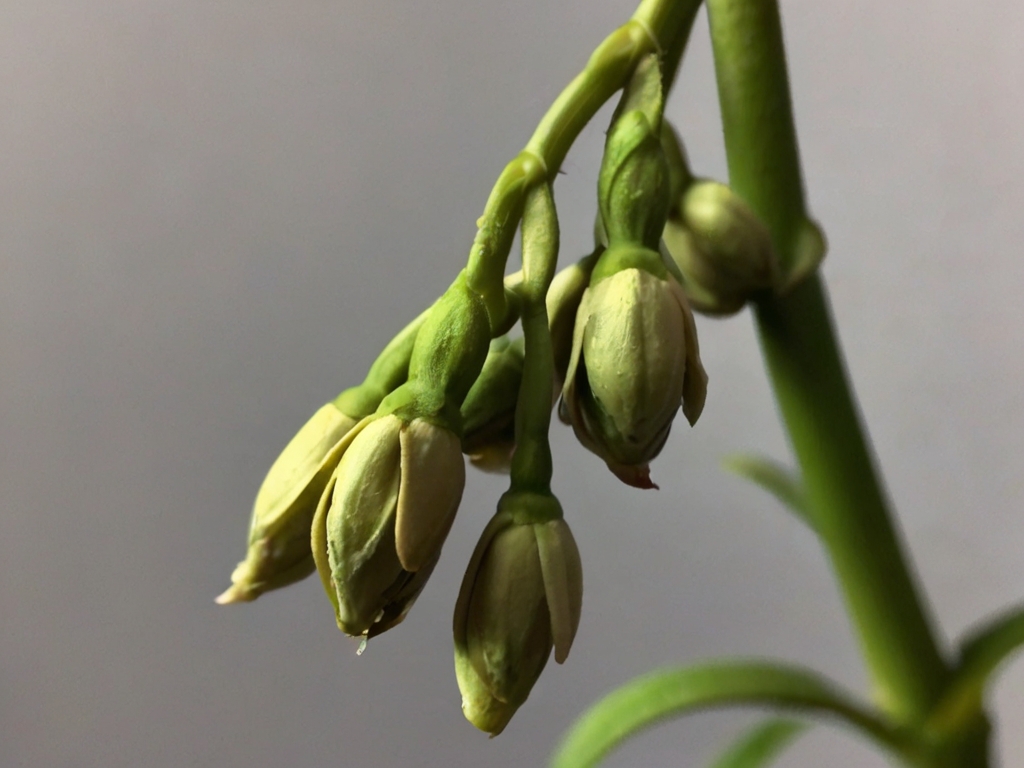Orchids, known for their stunning blooms, can face bud blast, where buds wither and fall before blooming, frustrating enthusiasts. This article explores causes like environmental conditions, nutrition, pests, and diseases. Bud blast differs from natural bud drop, part of orchids’ growth cycle. Factors like temperature fluctuations, low humidity, inadequate light, and poor air circulation contribute to bud blasts, which can also be triggered by nutritional deficiencies and pest infestations.
Prevention involves proper care, watering, fertilization, and pest control. Remedies include pruning affected parts and addressing pests or diseases promptly. After Bud Blast, continuing care is vital for encouraging new growth and preventing future issues. Understanding and managing orchid bud blasts can ensure healthy blooms.
Table of Contents
Understanding Bud Blast in Orchids
Bud blast is a common problem that affects many types of orchids. It occurs when the buds of an orchid plant fail to develop fully and instead drop off prematurely. This can happen at any stage of bud development, from the initial formation of the bud to just before it is about to open. Various factors, including environmental conditions, nutritional deficiencies, pests, and diseases, can cause bud blasts.
It is important to note that bud blast differs from natural bud drop. Natural bud drop occurs when an orchid plant sheds its buds as part of its normal growth cycle. This natural process allows the plant to save energy and resources. On the other hand, a Bud blast is an abnormal occurrence often caused by external factors.
Causes of Orchid Bud Blast
According to American Orchid Society, there are several potential causes of orchid bud blasts, and it is essential to identify the specific cause to prevent or remedy the issue effectively. The most common causes include environmental factors, nutritional deficiencies, pests, and diseases.
Environmental Factors that Trigger Orchid Bud Blast
Environmental factors play an important role in initiating bud blasts in orchids. Temperature, humidity, light, and air circulation all impact the health and development of orchid buds.
Temperature fluctuations
Temperature fluctuations can be particularly problematic for orchids. Sudden temperature changes, especially if they are extreme, can cause stress to the plant and lead to bud blasts. Orchids generally prefer a stable temperature range, with most species thriving between 60 and 80 degrees Fahrenheit.
Inadequate Humidity
Humidity is another essential factor to consider when preventing bud blasts. Orchids are native to tropical regions and require high humidity levels to thrive. If the air is too dry, the buds may not develop properly and can drop off prematurely. It is essential to provide adequate humidity for your orchid plants through regular misting or a humidifier.
Insufficient Light
Light is also crucial for the healthy development of orchid buds. Most orchids require bright, indirect light to bloom properly. If an orchid is not receiving enough light, its buds may fail to develop or drop off before they can open. On the other hand, if an orchid is exposed to too much direct sunlight, it can become stressed and experience bud blast.
Poor air circulation
Air circulation is often overlooked but essential in preventing bud blasts. Poor air circulation can create a stagnant environment conducive to the growth of fungi and bacteria, which can lead to bud blast. It is essential to provide adequate air movement around your orchid plants through natural ventilation or fans.
Nutritional Deficiencies and Orchid Bud Blast

Nutritional deficiencies can also contribute to bud blast in orchids. Orchids require a balanced diet of essential nutrients to grow and bloom properly. If any of these nutrients are lacking, the plant may become stressed, and its buds may drop off prematurely.
Some essential orchid growth nutrients include nitrogen, phosphorus, potassium, calcium, magnesium, and trace elements such as iron and manganese. These nutrients are crucial in plant development, including bud formation and flower production.
To ensure that your orchids are receiving the necessary nutrients, it is essential to use a high-quality orchid fertilizer. This will provide a balanced mix of nutrients specifically formulated for orchids. It is also necessary to follow the instructions on the fertilizer package and not over-fertilize, as this can also cause stress to the plant and lead to bud blast.
Pests and Diseases that Cause Orchid Bud Blast
Pests and diseases can also cause major bud blasts in orchids. Common pests that can cause bud blasts include aphids, mealybugs, scale insects, and thrips. These pests feed on the plant’s sap and can cause significant damage if left untreated. In addition to causing bud blasts, they can also weaken the plant’s overall health and make it more susceptible to other issues.
Fungal and bacterial infections can also lead to orchid bud blasts. Poor growing conditions, such as excessive moisture or poor air circulation, can cause these infections. They can also be spread through contaminated tools or by coming into contact with infected plants.
It is important to regularly inspect your orchid plants for signs of pests or diseases. If you notice any unusual spots, discoloration, or wilting, take action immediately. Various treatments, including insecticides and fungicides, are available for pests and diseases. It is important to choose a treatment that is safe for orchids and to follow the instructions carefully.
Preventing Orchid Bud Blast
Preventing bud blasts in orchids requires proper care and attention to detail. Here are some tips for avoiding bud blasts in your orchid plants:
1. Proper watering: Orchids should be watered thoroughly but allowed to dry between waterings. Overwatering can lead to root rot and other issues, while underwatering can cause stress and bud blast. It is essential to find the right balance and adjust your watering routine based on the specific needs of your orchid species.
2. Fertilization: As mentioned earlier, orchids require a balanced diet of essential nutrients to grow and bloom properly. Using a high-quality orchid fertilizer and following the instructions carefully can help ensure that your orchids receive the necessary nutrients.
3. Pest control: Regularly inspect your orchid plants for signs of pests and take action immediately if you notice any issues. Various organic and chemical treatments are available for pests, so choose one that is safe for orchids and follow the instructions carefully.
4. Optimal growing environment: Creating an optimal orchid environment is crucial for preventing bud blasts. This includes providing the right temperature, humidity, light, and air circulation. It is also essential to choose a suitable potting medium and to repot your orchids as needed.
Remedies for Orchid Bud Blast
If bud blast occurs in your orchid plants, there are several remedies that you can try.
Pruning
One of the first steps is to prune off any affected buds or flowers. This will help prevent the spread of pests or diseases and redirect the plant’s energy towards new growth.
Use Insecticides and Fungicides
If pests or diseases are causing the bud blast, it is important to treat these issues as soon as possible. Various treatments are available, including insecticides and fungicides. It is important to choose a treatment that is safe for orchids and to follow the instructions carefully.
Watering, Fertilization, and Pest control
After the bud blast, it is important to continue caring for your orchid plants as usual. This includes proper watering, fertilization, and pest control. The plant may take some time to recover and produce new buds, so be patient and continue providing the necessary care.
Caring for Orchids After Bud Blast
Caring for orchids after bud blasts is crucial for encouraging new growth and preventing future bud blasts. Here are some tips for caring for your orchid plants after bud blast:
1. Continue providing proper care: It is essential to continue providing proper watering, fertilization, and pest control for your orchid plants. This will help ensure the plant remains healthy and has the necessary resources to produce new buds.
2. Encourage new growth: To encourage new development, you can give your orchid plants a boost of nutrients by using a diluted orchid fertilizer or a foliar spray. It is important to follow the instructions carefully and not over-fertilize, as this can cause stress to the plant.
3. Prevent future bud blasts: To prevent future bud blasts, it is essential to address any underlying issues that may have caused the problem in the first place. This includes ensuring the plant receives the proper environmental conditions, nutrients, and pest control.
Orchid Bud Blast is Manageable
In conclusion, orchid bud blast can be frustrating for orchid enthusiasts, but with proper care and attention, it is a manageable problem. By understanding the causes of bud blast and taking steps to prevent and remedy the issue, you can enjoy beautiful blooms from your orchid plants. Remember to provide the proper environmental conditions, nutrients, and pest control and to regularly inspect your plants for any signs of trouble. You can keep your orchids healthy and thriving with a little effort.

